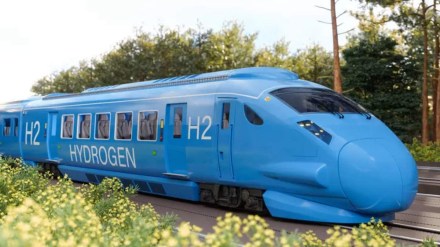Hydrogen Train: For the first time in India, a hydrogen-powered train is on the verge of final commissioning, showcasing cutting-edge technology and clean energy innovation.
The Ministry of Railways announced on Wednesday, August 13, that the Integral Coach Factory (ICF) in Chennai successfully tested the country’s first hydrogen-powered driving power car earlier this week, marking a major step toward operational deployment.
This achievement positions Ashwini Vaishnaw-led Indian Railways alongside a select group of nations experimenting with hydrogen-powered trains, most of which are still in trial phases.
Greener railways
The hydrogen train project is a key part of Indian Railways’ strategy to reduce greenhouse gas emissions and increase the share of renewable energy in its operations. By shifting from fossil fuels to hydrogen, a cleaner alternative, the Railways aims to cut its carbon footprint and dependence on imported fuel.
Officials confirmed that the project has now entered its final stage, with extensive equipment testing underway before the train is pressed into commercial service.
What do we know about the project?
Initiated by the Northern Railway zone in 2020-21, the project comprises two main components – conversion of two conventional 1600 HP diesel power cars into hydrogen fuel cell-powered traction systems and establishment of a hydrogen storage and fuelling facility at Jind, Haryana.
The total project cost is approximately Rs 136 crore, with the Research Design & Standards Organisation (RDSO) handling primary design, validation, and testing.
The converted train will be a 10-coach diesel-electric multiple unit (DEMU), capable of carrying over 2,600 passengers. Once operational, it is planned to run between Jind and Sonepat in Haryana, completing two round trips of 356 km daily. The hydrogen storage facility at Jind will have a total capacity of 3,000 kg.
How the technology works?
Each power car will carry 220 kg of hydrogen in specially designed cylinders pressurised to 350 bar. The system will power traction motors through fuel cells that generate electricity by combining hydrogen with oxygen, emitting only water vapour as a by-product.
Given hydrogen’s highly flammable nature, safety remains a critical focus. Computational Fluid Dynamics (CFD) studies have been conducted to simulate potential leak scenarios, ensuring robust mitigation measures. The train will be equipped with multiple safety systems, including pressure relief valves, leak detection, flame sensors, temperature monitors, and optimised ventilation.
Bharat’s Hydrogen Journey !
— Ministry of Railways (@RailMinIndia) August 13, 2025
For the first time in India a hydrogen-powered train is set for its final commissioning, a landmark that showcases India’s rise as a technological powerhouse, driving innovation on the global stage. 🇮🇳#HydrogenTrain pic.twitter.com/RGwt5COKIC
German safety auditor TÜV SÜD has been brought in for independent assessment of safety standards. The engineering design and conversion are being carried out at ICF Chennai, with Hyderabad-based Medha Servo Drives handling the technical integration.
All core components such as the vehicle control system, boost and traction converters, auxiliary converters, and traction motors have undergone successful in-house testing.
Jind hydrogen fuelling facility
The fuelling facility at Jind will store 2,320 kg of hydrogen at low pressure and 680 kg at high pressure. Built to standards set by the Petroleum Explosives Safety Organisation (PESO), the facility will include supporting infrastructure like a dedicated power supply, firefighting systems, and access roads.
